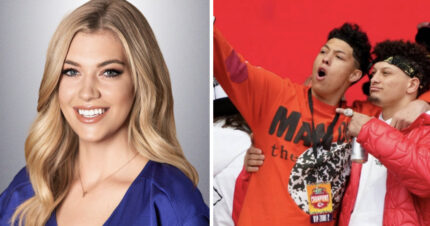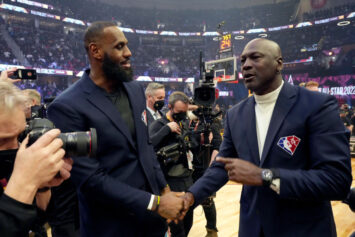The Jackie Robinson of hockey broke the NHL’s color barrier with the Boston Bruins in 1958.
Willie O’Ree joined five other inductees who were celebrated for their contributions to hockey at a ceremony in Toronto, Ontario on Monday. The ceremony puts a fitting bow of bravery on Willie O’Ree’s life as a pioneer, leader and trailblazer.
Congratulations to the @HockeyHallFame Class of 2018! 👏🏼 pic.twitter.com/J4HeZ8LaZe
— NHL (@NHL) November 12, 2018
The 82-year-old icon was the first black player in the NHL — a black puck on white ice –who broke hockey’s color barrier and debuted for the Boston Bruins in 1958.
Over his 21-year hockey career, Willie O'Ree faced racism on all professional levels, but never let it stop him from playing the game he loved.
Tonight, O'Ree will be inducted into the Hockey Hall of Fame.https://t.co/K14I773GKH pic.twitter.com/mSWIFckQoE
— Boston Globe Sports (@BGlobeSports) November 12, 2018
The Canadian player faced overwhelming odds, which included having to play while racists spewed their venom and, more surprisingly, making it to the NHL while being almost completely blind in his right eye. The inury was a result of O’Ree taking a shot in the face while playing junior hockey.
Despite the handicap, O’Ree played two seasons in the NHL with the Bruins. He skated for a total of 45 total games in the 1957-58 and 1960-61 seasons. Then, spent the rest of his career playing for minor leagues such as the AHL, EPHL, QHL and the Western Hockey League (WHL). He retired at the age of 43 after scoring 328 goals and collecting 311 assists in his post NHL career.
Now, he’s finally getting his long-overdue props.
Congratulations, Willie. #HHOF2018 https://t.co/D4Z0vmcex3
— NHL (@NHL) November 12, 2018
After O’Ree left the NHL ice in 1961, the League didn’t see another Black player until 1974. Mike Marson suited up for the Capitals. In addition, it took 60 years for O’Ree’s heroics to be acknowledged, so the struggle continues. O’Ree’s been eligible for the Hall of Fame since 1962.
While his stats might not be gaudy, his true greatness and importance is in what he accomplished, endured and trailblazed as the League’s first Black player. Without O’Ree, players such as J.T. Brown, Grant Fuhr, Jarome Iginla, P.K. Subban and Wayne Simmonds wouldn’t be thriving as a small, but goriwing, contingent of black NHL players. They fight back now too.
It took hockey awhile, but the institution is finally acknowledging the game changing contributions of players of color in a sport that is still considered the property of white athletes in this country and abroad.



